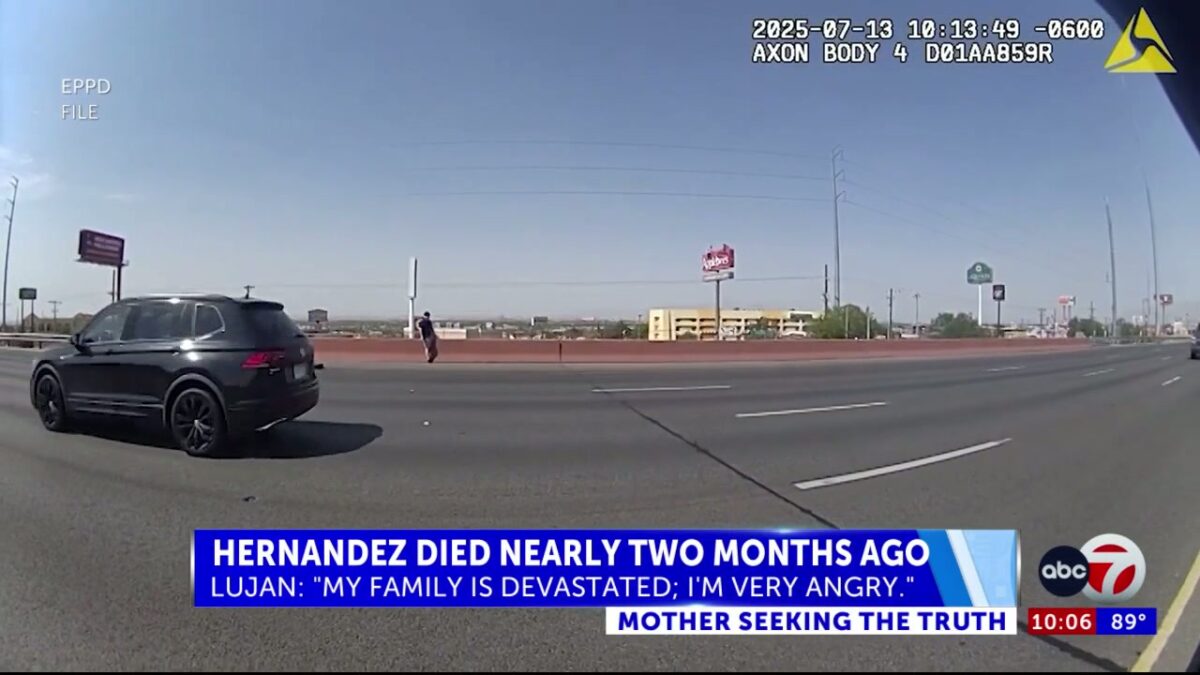Family of El Paso man who died after being tased by police to file lawsuit seeking accountability

Heriberto Perez Lara
EL PASO, Texas (KVIA) — Angelica Lujan, the mother of Xavier Guadalupe Hernandez, the 30-year-old man who died after a confrontation with police officers on I-10, is planning to sue the City of El Paso and those involved in her son’s death.
ABC-7 reported last month that the autopsy report on Hernandez’s death was ruled a homicide. The autopsy states asphyxia due to chest compression during law enforcement subdual and restraint along with cocaine toxicity as significant contributing factors in his death.
“What I need right now is the community’s help; I can’t, we can’t as a community, we can’t let stuff like this happen anymore,” Lujan said. “I’m begging, I’m pleading to the community to please help me with this.”
“These people (police officers), they’re trained to handle these kinds of situations, but it just was not handled the way it should have been handled,” Lujan added.
Lujan also discussed the discovery of cocaine toxicity in her son’s autopsy, mentioning that they were unaware he was using any drugs.
“I cannot, and I don’t know everything he did or did not do, I don’t, but it was ruled a homicide because death was due to asphyxia, which is basically he was deprived of oxygen,” Lujan said. “I am not aware of any drugs that deprive you of oxygen the way asphyxia does.”
Melendez Law Firm and Edwards Law are currently representing Lujan and plan to file a lawsuit soon, seeking transparency and accountability. They want to learn more about whether EPPD’s Crisis Intervention Team was dispatched during the incident.
“This is completely irrelevant (use of drugs); it had nothing to do with the way that the police department reacted to him. It doesn’t matter whether somebody has something like that or they’re having a mental health crisis without that, or any intoxicant; he still deserved to have his Fourth Amendment right to basically an unreasonable seizure like this,” said Attorney Robert Melendez.
“It’s completely irrelevant, and again, at the time they killed this young man, he was completely handcuffed and under their control, so none of that is relevant and it’s really not the cause of his death,” Melendez added. “As the autopsy states, asphyxia caused by chest compression — we can see from the police body cam video that they’re doing this to him while he’s under their full control and he’s not a threat to anyone.”
Melendez and Lujan said Hernandez should still be alive today, and that officers should have been better trained. “These officers should have, if they were trained effectively, acknowledged that training and clearly kept him alive,” Melendez said.